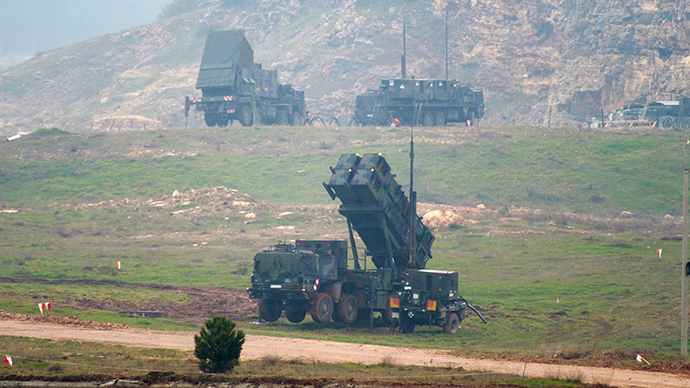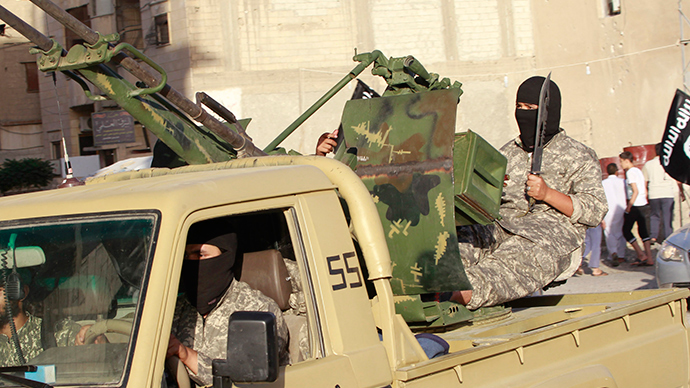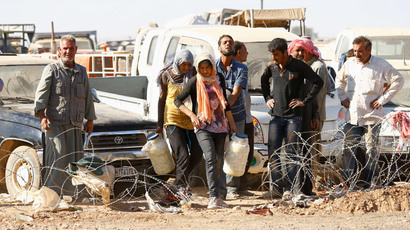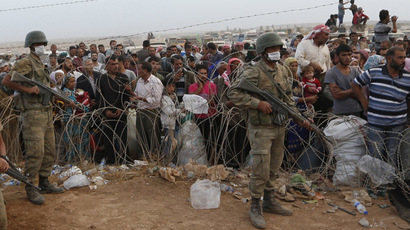NATO promises to protect Turkey against ISIS threat

NATO will not abandon Turkey if it is attacked by Islamic State fighters which are closing in on the member state's border from Syria, the alliance's secretary-general, Jens Stoltenberg, said.
“Turkey should know that NATO will be there if there is any spillover, any attacks on Turkey as a consequence of the violence we see in Syria,” Stoltenberg said, as quoted by Reuters.
On Monday, Islamic State (IS, formerly ISIS/ISIL) militants raised their black flag on the eastern outskirts of the Syrian town of Kobani (Ayn al-Arab), which is situated near the Turkish border.
The secretary-general stressed that NATO's main task is to “protect all allied countries,” including Turkey, which joined the alliance in 1952.
“Turkey is a NATO ally and our main responsibility is to protect the integrity, the borders of Turkey and that is the reason why we have deployed Patriot missiles in Turkey to enhance, to strengthen the airfence of Turkey," Stoltenberg said during a visit to Poland.

Six Patriot missile batteries were delivered to Turkey in early 2013 after Ankara asked for NATO's help to bolster security along its 900-kilometer border with war-torn Syria.
Last week, Turkey's parliament authorized the presence of foreign forces on the country’s territory. The mandate came after Washington put pressure on Ankara to allow troops to use Incirlik air base in the southern Adana region.
MPs also gave the Turkish military the go-ahead to engage in military action against Islamic State insurgents in Syria and Iraq.
Previously, Turkish President Recep Tayyip Erdogan said that the “Turkish military alone” would be able to protect the country’s borders from ISIS jihadists.
Turkey possesses the strongest army in the region, with over 400,000 active personnel, more than 3,500 tanks, and nearly 1,000 aircrafts, according to Global Firepower website.

In April, Business Insider included the country’s army in its list of the “11 most powerful militaries in the world.” It ranked eighth, ahead of South Korea, Japan, and Israel.
“Turkish military spending is expected to rise 9.4 percent in 2014 over the 2013 budget. The ongoing conflict in Syria and possible clashes with the Kurdish separatist organization, the PKK, were key reasons for the spending increase. Turkey's defense budget stands at $18.2 billion,” Business Insider said.
“The NATO member has contributed soldiers to various initiatives around the world. The Turkish military took part in operations in Afghanistan, as well as in peacekeeping operations in the Balkans. Turkey also maintains a large military force in Northern Cyprus,” the publication added.
The violent Islamic Sate jihadist group continues to gain territory, despite airstrikes performed against it in Syria and Iraq by the US-led coalition.














